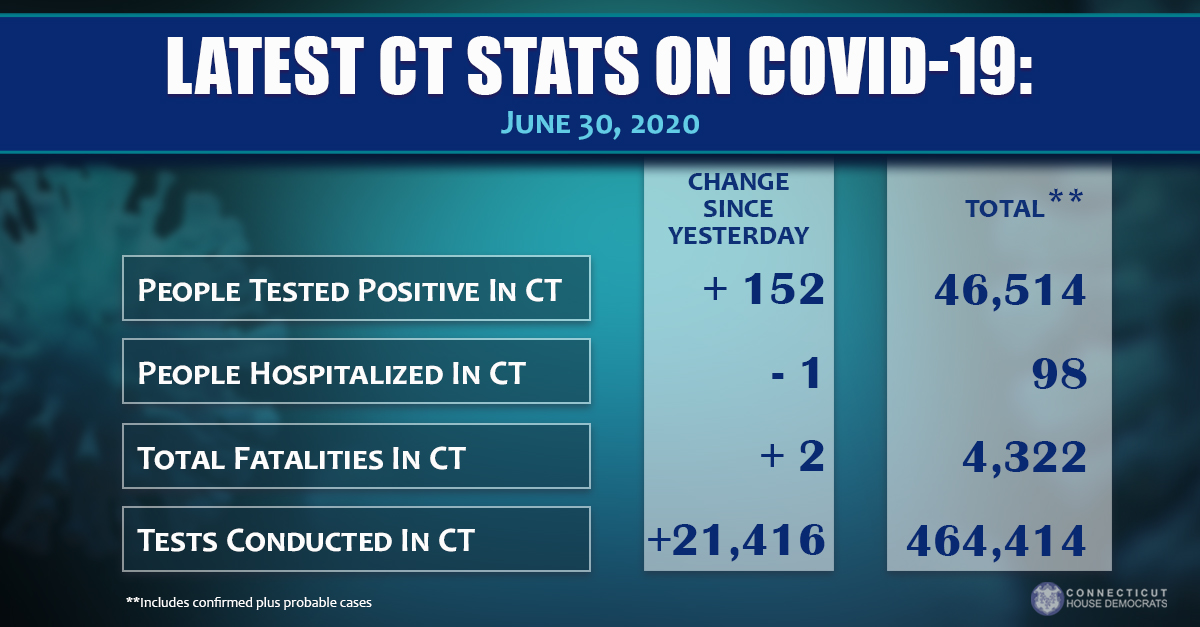Relief for Renters, Homeowners, Residential Landlords
June 30, 2020To help you and our neighbors stay up-to-date on the ever-evolving stream of information related to the COVID-19 pandemic, my office and I are working to provide news as it develops over social media and by email.
Below you can find information on the following topics:
- COVID-19 Update
- Assistance for Renters, Homeowners
- Debt-Free Community College
- Indoor & Outdoor Gatherings
- Guidelines for Returning to CT Schools
- Changes to the Paycheck Protection Program
- 2020 Census
COVID-19 Update
As of Tuesday at 4 p.m., a total of 46,514 cases of COVID-19 have been reported among Connecticut residents. This includes 44,534 laboratory-confirmed cases and 1,980 probable cases. Day-to-day changes reflect newly reported cases, deaths, and tests that occurred over the last several days to week. All data in this report are preliminary; data for previous dates will be updated as new reports are received and data errors are corrected. For a county-by-county breakdown of cases or to view additional data, please click the image above.
58th Executive Order Signed
Tuesday the governor signed Executive Order No. 7EEE to further mitigate the spread of COVID-19, reopen the economy, streamline public services and provide assistance to those impacted. The executive order enacts the following provisions:
- Authorization for DSS to provide funding from the Coronavirus Relief Fund to additional providers: Authorizes the Department of Social Services to distribute funding from the Coronavirus Relief Fund to other types of health care institutions in addition to nursing homes, which was previously authorized.
- Online continuing education for plumbers and electricians: Allows continuing education classes for electricians and plumbers to be conducted online.
Click here to read Executive Order No. 7EEE.
57th Executive Order Signed
Monday, the governor signed Executive Order No. 7DDD, which enacts the following provisions:
- Extended protections for residential renters affected by COVID-19: Extends the moratorium on residential evictions to August 22, and extends opportunities for residential renters to apply money from their security deposits to payment of rent.
- Authority to extend statutory and regulatory administrative deadlines by an additional 90 days: Expands by an additional 90 days the ability for state agencies to extend any statutory or regulatory deadlines for filings, decisions, and notice in the many permitting and other applications and administrative hearings under their purview, and requires agencies to post any changes on their respective web sites. This is an extension of the order originally issued in Executive Order No. 7M.
Read Executive Order No. 7DDD here.
Regional Travel Advisory Updated to Include 8 Additional States
The tri-state travel advisory between Connecticut, New York, and New Jersey that went into effect last week now includes 8 additional states for a total of 16 states. The advisory directs incoming travelers from states with a significant community spread of COVID-19 to self-quarantine for a 14-day period. The quarantine applies to any person arriving from a state with a positive test rate higher than 10 per 100,000 residents over a 7-day rolling average.
States meeting the high-positivity criteria include:
- Alabama
- Arkansas
- Arizona
- California
- Florida
- Georgia
- Iowa
- Idaho
- Louisiana
- Mississippi
- North Carolina
- Nevada
- South Carolina
- Tennessee
- Texas
- Utah
For further information about the travel advisory, click here.
Read the full update here.
To read all of the emergency orders issued by the governor and state agencies, click here. Watch the daily news briefings here, and read the press releases here.
For the most up-to-date information from the State of Connecticut on COVID-19, including an FAQ and other guidance and resources, residents are encouraged to visit ct.gov/coronavirus.
Assistance for Renters, Homeowners
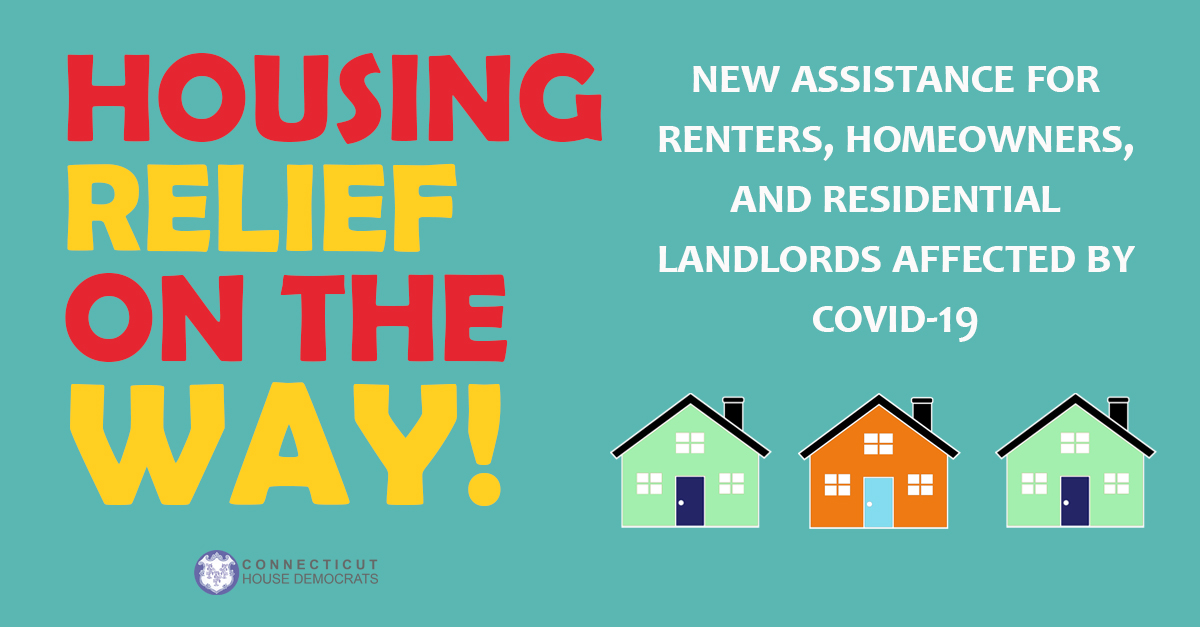
Monday state leaders announced $33 million in state and federal resources will be allocated to help renters, homeowners, and residential landlords impacted by COVID-19.
The plan includes the following:
- $10 million rental assistance program for Connecticut residents impacted by COVID-19, administered through the Department of Housing, which will provide payments to landlords on behalf of approved tenant applicants, with a priority on lower-income households who have been denied unemployment insurance;
- $5 million for eviction prevention to help renters who were in the process of eviction before the declaration of the COVID-19 public health emergency;
- $10 million to provide mortgage relief to homeowners who have suffered impacts from COVID-19 and whose mortgages are not federally insured, administered by the Connecticut Housing Finance Authority (CHFA);
- $4 million in rapid rehousing funds to help people pay costs like security deposits and initial rent to exit homelessness to housing, administered by the Department of Housing;
- $2.5 million rental assistance program for those who are ineligible for emergency assistance through the federal CARES Act, including those who are undocumented, administered by the Department of Housing;
- $1.8 million in funding for reentry and rehousing assistance for people exiting incarceration, administered by the Connecticut Coalition to End Homelessness;
- Extending the residential eviction moratorium to August 25, bringing Connecticut’s measures in line with federal measures (the CARES Act prevents evictions from most properties until late summer); and
- Extending the opportunity to apply a portion of any security deposit worth more than one month’s rent toward rental payments.
All housing assistance programs administered by the state and CHFA will include counseling to help renters and homeowners problem solve and develop plans to pay housing expenses.
Details, including the application process, are continuing to be developed and will be released as they become available. For additional information, please visit the below resources:
- Connecticut Department of Housing: portal.ct.gov/doh
- Connecticut Housing Finance Authority (CHFA): www.chfa.org
- Connecticut Coalition to End Homelessness (CCEH): cceh.org
Debt-Free Community College
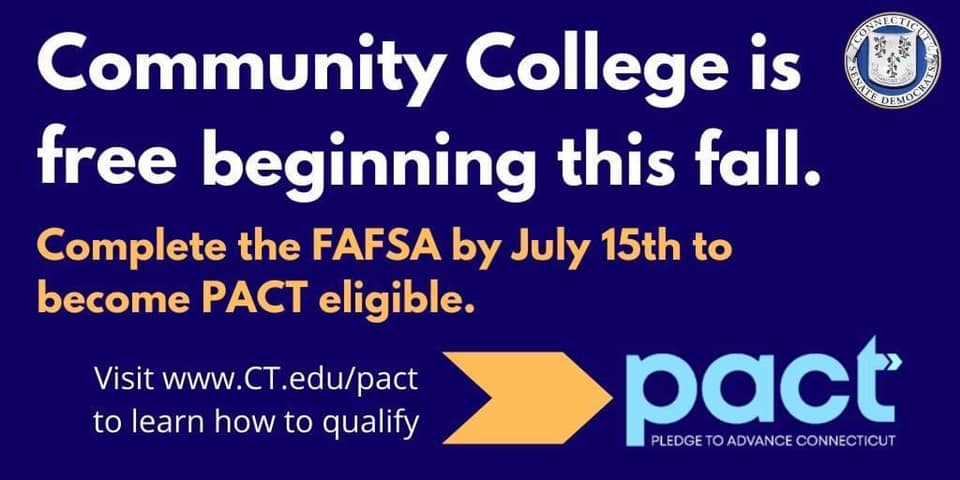
Community college will be debt-free for first-time students in Connecticut this fall. This also includes technical job training, like the Advanced Manufacturing Certificate program!
PACT funding covers the gap between federal and state grants and the cost of attending community college. To receive PACT funding, go through the application, registration process and fill out the FAFSA by July 15, 2020. Visit www.ct.edu/PACT for more information.
Indoor & Outdoor Gatherings
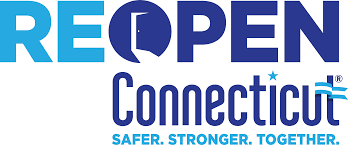
As our state moves forward in the reopening process, guidelines for private and public gathers will gradually increase on Friday in time for July 4 celebrations! Please continue to remain vigilant about practicing social distancing, and when that's not possible, please wear a mask to protect yourself and those around you. Our state has seen consistent declines in hospitalizations and other metrics, on which the full reopening of our state and economy depends.
The plan is as follows:
Effective July 3:
- Indoor private gatherings – 25 people
- Outdoor private gatherings – 100 people, one time exception for graduations at 150 people
- Outdoor organized gatherings (e.g. fireworks, concerts in municipal parks) – 15 feet of space blanket to blanket, cap of 500 people; event organizer responsible for compliance with guidance
- Outdoor event venues (e.g. amphitheaters, race tracks) – 25% of fire capacity and distancing
Effective mid-July (date to be determined):
- Indoor private gatherings – 50 people
- Outdoor private gatherings (including graduations) – 250 people
- Outdoor organized gatherings (e.g. fireworks, concerts in municipal parks) – 15 feet of space blanket to blanket, no cap; event organizer responsible for compliance with guidance
- Outdoor event venues (e.g. amphitheaters, race tracks) – 50% of fire capacity and distancing
Guidelines For Returning to CT Schools
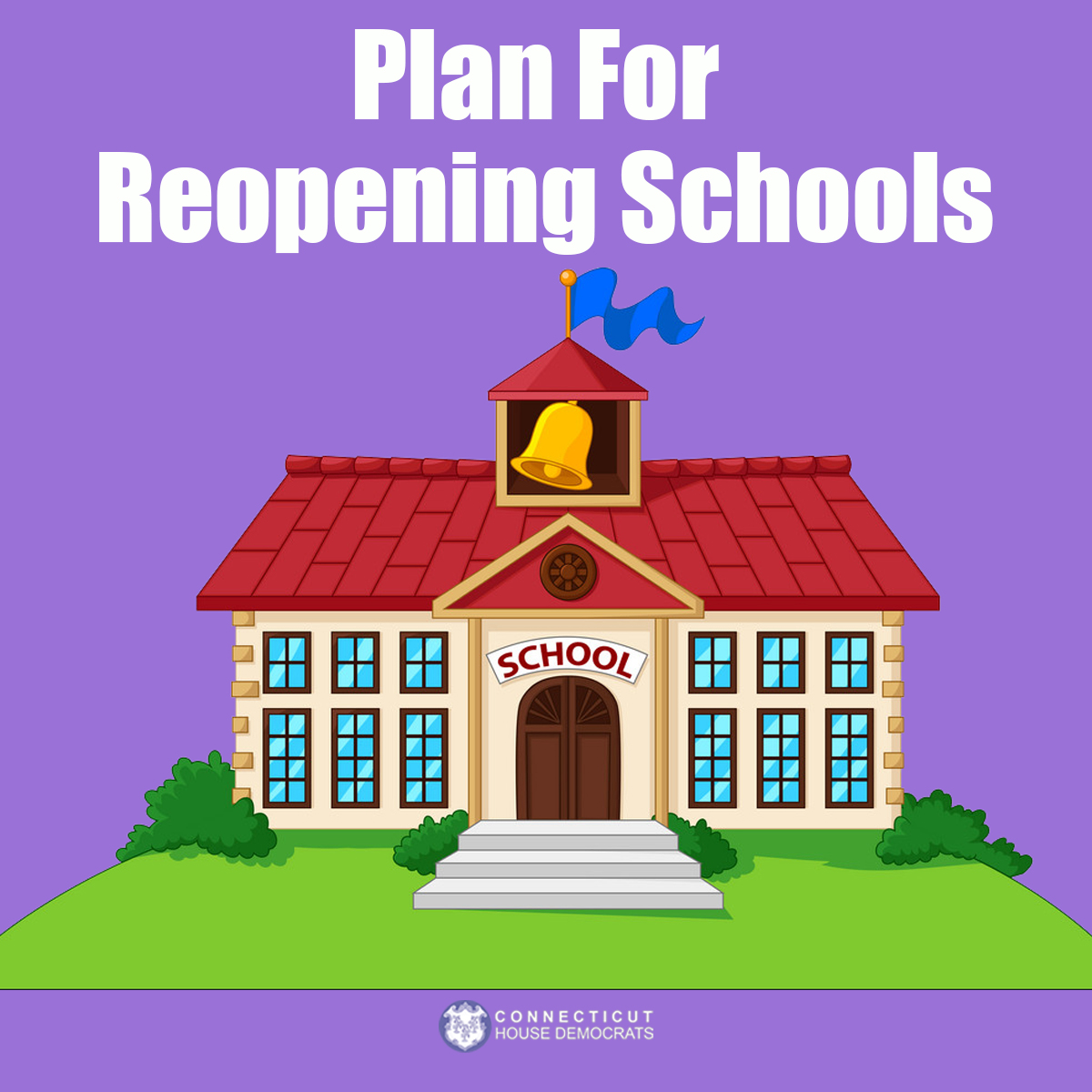
The Connecticut State Department of Education released a comprehensive plan for returning to in-school, full-time instruction for the 2020-21 academic year. The plan, entitled, "Adapt, Advance, Achieve: Connecticut's Plan to Learn and Grow Together" provides school districts guidance as they they plan to reopen schools for the new school year as long as public health data supports this model.
Read the full plan here.
Changes to the Paycheck Protection Program
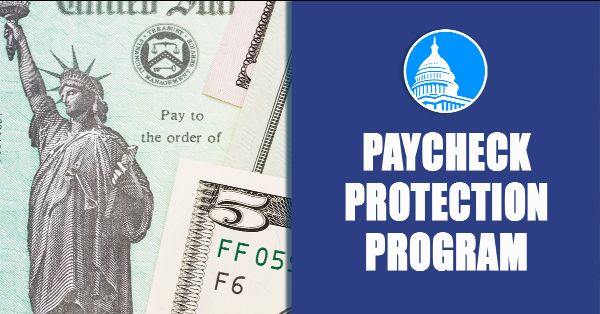
I want to be sure to inform you of the changes Congress recently made to the Paycheck Protection Program (PPP), which was created in March in an effort to help small businesses affected by the COVID-19 pandemic.
The Paycheck Protection Flexibility Act, which was signed into law on June 5th, eases some of the restrictions on how businesses use and pay back the loans they receive from the Paycheck Protections Program.
According to a release from David Lehman, the head of the Connecticut Department of Economic and Community Development (DECD), key changes to the PPP include the following:
- Extends the period to use PPP funds from 8 weeks to 24 weeks
- Reduces from 75% to 60% the amount a company must spend on payroll
- Borrowers may now use the 24-week period to fully restore their workforce levels and wages (December 31 instead of June 30)
- Businesses now have five years to repay the loan, instead of two
If you or someone you know owns a small business and would like more information on these recent changes to the Paycheck Protection Program, click here.
2020 Census

Have you completed the 2020 Census? If you have, let everyone know you've done your part by posting a selfie with your completed Census and tag 3 friends to do the same.
If you haven't completed the Census for your household, head over to my2020census.gov to complete it. It only takes a few minutes of your time to complete.
Learn how the U.S. Census Bureau protects your information and why it's critical for you to be counted here.






